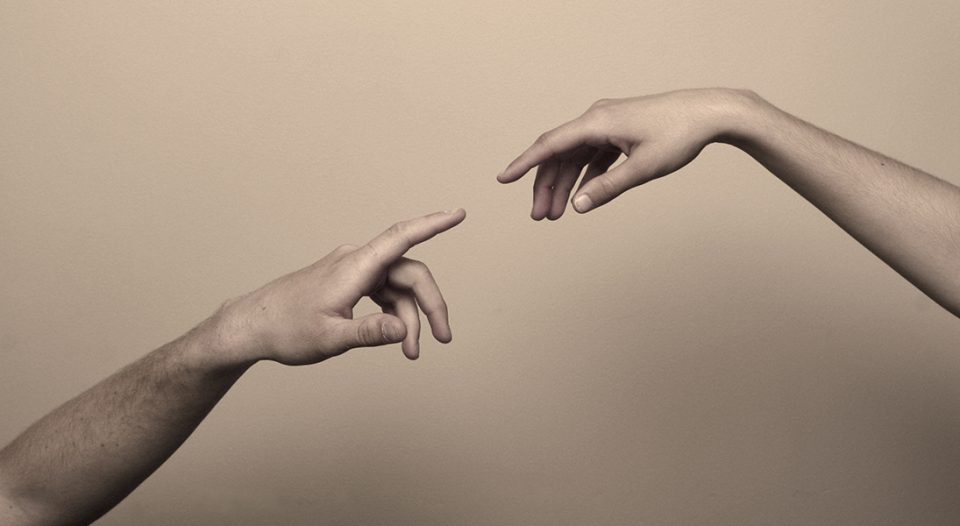It was an ordinary Sunday afternoon, but I’ll never forget its poignancy. My mother lived far away, and I was sharing yet another long-distance phone conversation with her. She was deep in the throes of depression, barely able to make coherent sentences, desperate for help. Her voice was soft and so far away that I had to strain to hear her. Even today, more than a decade later, I feel her desperation and the weight of her angst.
To calm her and comfort myself, I kept reminding her of a loving God who would not abandon her. Over and over again, I described the grace she’d shared with me as a child—overwhelming and unconditional love, a God who suffers with us and for us, and, most of all, a God who makes us in God’s own image.
But her darkness was too deep, too profound. The very words of grace she’d proffered in my childhood—“You, dear child! You are made in the image of God!”—belied her depression-induced default “lowly worm” Protestant piety and seemed to fall on deaf ears. In desperation I began to sing—perhaps mostly for my own aching heart but also as a way of surrounding her with hope and love.
“Healer of our every ill, light of each tomorrow, give us peace beyond our fear, and hope beyond our sorrow ….”
“The king of love my shepherd is, whose goodness fails me never ….”
“Eat this bread, drink this cup, taste and see the goodness of God ….”
At one time or another, many of us struggle with the crippling implications of so-called “lowly worm” theology: an overwhelming sense of brokenness, powerlessness, vulnerability. Our Lutheran tradition is deeply influenced by St. Augustine’s interpretations of original sin, and it’s sometimes hard for us to grasp the life-changing and life-challenging inferences of being made in God’s image. A God of judgment somehow reinforces our need to judge—others as well as ourselves.
We are God’s home and the whole world is the house of God—our literal physical and spiritual home.
This is not to say we are without sin or that we are perfect like God. What it does say is that God’s image, “imago Dei,” is our inherent identity. In Genesis 1:26, God spoke us into being: “Let us make humankind in our image, according to our likeness.”
To be created in God’s image means we are in union with God. God makes God’s home in us. We are invited to embody God, to be “little Christs.” We are God’s home and the whole world is the house of God—our literal physical and spiritual home.
On that Sunday afternoon as I sang to my mother over the phone, I wanted her to feel God’s presence within herself. I wanted her to know the shelter and security of God’s overwhelming love. I desperately wanted her to see and feel at home in her own arms and in the arms of God.
The disease of depression finally robbed my mother of those assurances. Nevertheless, she knew the literal and spiritual meanings of home and passed along to me a deep awareness of a God whose grace and sense of justice is so deep and so ubiquitous as to create us in God’s very image. This gift of God’s grace and unconditional love is hard for us to fathom. It is, in the words of theologian Matthew Fox, our “original blessing,” and it is our true home.





